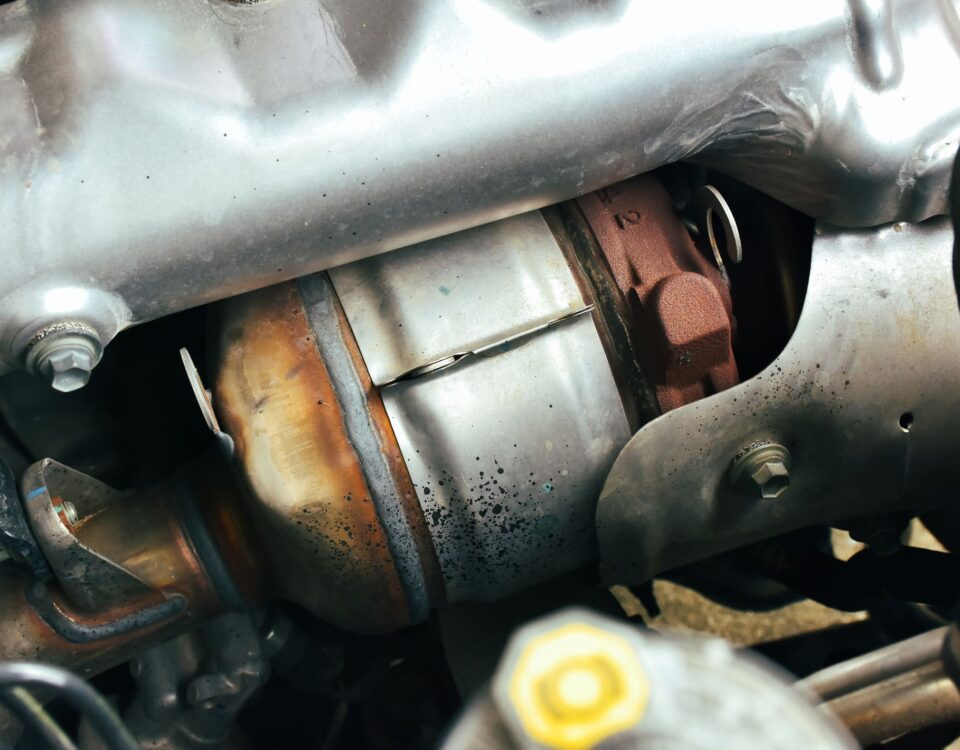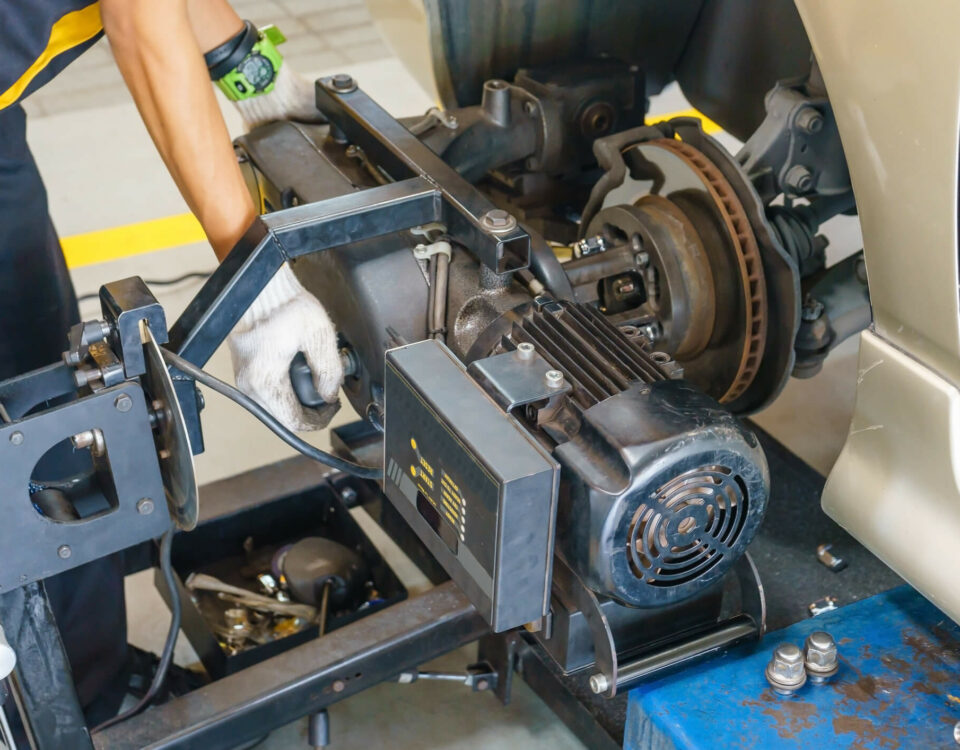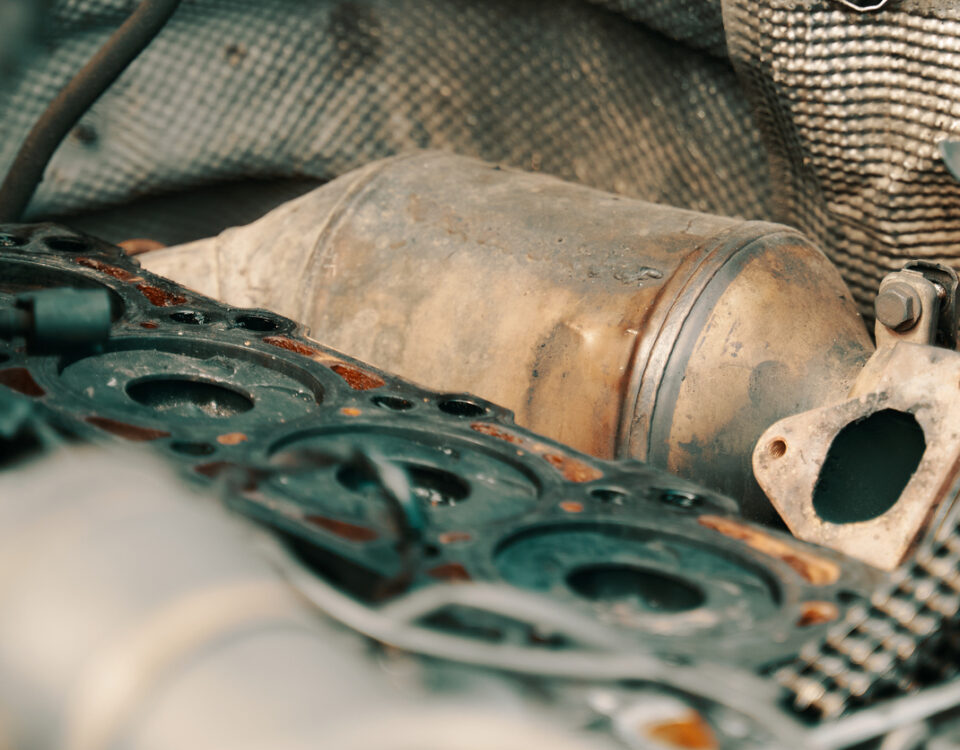The Expert Guide To Professional Diesel Particulate Filter Cleaning
How Does Professional Diesel Particulate Filter Cleaning Work?
Professional Diesel Particulate Filter (DPF) cleaning is a process designed to clear out built-up soot and particles from the filter found in diesel engines. These filters, known as DPFs, play a vital role in contemporary diesel vehicles by diminishing harmful emissions. As time passes, the DPF can get blocked with soot and particles, which can influence engine performance and emission levels. Keeping the DPF clean is vital to keep the engine running smoothly and meet emission rules appropriately.
Steps To Follow:
There are several methods of cleaning DPFs:
Heat The Engine:
In the context of professional diesel particulate filter (DPF) cleaning, heating the engine is an essential step in the regeneration process. The DPF is designed to trap and store particulate matter, such as soot and ash, that is produced during the combustion process in a diesel engine. Over time, these particles accumulate and can lead to increased exhaust back pressure, reduced engine performance, and increased emissions.
DPF regeneration is the process of burning off the accumulated soot and ash to keep the filter clean and functioning properly. There are two primary methods for DPF regeneration:
Passive Regeneration:
This occurs naturally during normal driving conditions, where the exhaust temperatures are high enough to burn off the accumulated soot. However, for short trips or low engine loads, the exhaust temperatures may not reach the required level for passive regeneration.
Active Regeneration:
When passive regeneration is not sufficient, the engine’s control system initiates active regeneration. During active regeneration, the engine management system increases the exhaust gas temperature to a level where the soot particles burn off. This process usually involves injecting extra fuel into the exhaust stroke or using electric heaters or burner systems in the exhaust line to raise the exhaust gas temperature.
During active regeneration, it is crucial to monitor the engine’s temperature to avoid any damage due to overheating. Proper engine heating helps ensure that the DPF cleaning process is effective and reduces the likelihood of incomplete regeneration, which can lead to further issues with the DPF and engine performance.
Use Recommended Oil:
Using recommended oil is crucial when performing diesel particulate filter (DPF) cleaning work. The DPF is an essential component in modern diesel engines that helps reduce harmful emissions. Over time, soot and other particulates can accumulate in the DPF, leading to decreased performance and potential engine issues.
When cleaning the DPF, it is important to follow the manufacturer’s guidelines and use the specific cleaning methods and products recommended for that particular DPF model. Using the wrong cleaning agents or oils can damage the DPF and void the warranty.
Typically, DPF cleaning involves the use of specialized cleaning solutions and sometimes a DPF cleaning machine. These cleaning solutions are formulated to dissolve and remove soot and contaminants from the DPF while preserving its integrity. Regular engine oil or other cleaning agents not designed for DPF cleaning should not be used, as they may not effectively clean the filter or may cause damage.
To ensure a proper and effective DPF cleaning, always refer to the vehicle’s manual or consult with a certified mechanic or service center that specializes in DPF maintenance. They can recommend the appropriate cleaning products and procedures for your specific vehicle’s DPF, ensuring that it continues to function efficiently and maintains compliance with emissions standards.
Use Premium Fuel:
Use Premium Fuel: Using any gasoline-based fuel, even premium gasoline, in a diesel engine or during DPF cleaning procedures is not advised because it could seriously harm the engine and emissions control system. Diesel fuel, which is distinct from petrol and is required for diesel engines, must be used, and doing so can have detrimental effects.
Premium petrol has a different formulation than normal petrol since it is specifically designed for use in gasoline engines, not diesel engines. Additionally, its octane rating is higher. Diesel engines are powered by diesel fuel, which has a higher energy density and was developed to work with the unique properties of diesel engines.
If you must scrub a diesel particulate filter, it’s essential to use cleaning methods and products that are appropriate for diesel engines and particulate filters. Regular maintenance and the use of suitable diesel fuel will contribute to the longevity and correct operation of the diesel engine and emissions control system.
Regular Service Of Your Car Engine:
To be efficient, dependable, and long-lasting, your car’s engine needs routine maintenance. Your car will run more effectively and cost less to repair with routine maintenance. Among the crucial elements of routine car engine maintenance are the following:
Oil Replace:
It’s important to replace the oil regularly to keep the engine oiled and avoid excessive wear and tear. Pay attention to the manufacturer’s advice on how frequently to change your oil.
Fluid Check:
In addition to oil for the engine, the maintenance schedule calls for routine checks and repairs on fluids like coolant, brake fluid, steering fluid, and transmission fluid.
Air Filter:
The air filter keeps particles and dust out of the engine. To guarantee that the engine receives proper airflow, regularly check, clean, or replace it.
Spark Plugs:
These are in charge of lighting the mixture of fuel and air in an engine’s cylinders on fire. As advised by the manufacturer, check them and replace them.
Timing Belt/Chain:
Some engines have timing belts or chains that must be replaced at specific intervals to prevent engine damage if they fail.
Fuel System Cleaning:
Periodic cleaning of the fuel system helps maintain fuel efficiency and prevents clogging of fuel injectors.
PCV Valve:
The Positive Crankcase Ventilation (PCV) valve regulates the flow of gases within the engine. Make sure it is clean and functioning correctly.
Battery:
Check the battery’s health and clean the terminals regularly.
Belts and Hoses:
Inspect and replace any worn-out belts and hoses to prevent engine overheating or other issues.
Advantages Of DPF Cleaning:
DPF (Diesel Particulate Filter) cleaning offers several advantages, especially for vehicles equipped with diesel engines. Here are some of the key benefits:
Improved Performance:
As the DPF gets clogged with soot and particulate matter over time, it can lead to a decrease in engine performance. Cleaning the DPF helps to restore proper airflow, allowing the engine to function more efficiently and deliver better performance.
Improved Fuel Economy:
A clean DPF enables improved combustion, which lowers engine backpressure and increases fuel economy. The engine needs to work more to push emissions out when the DPF is blocked, which results in higher fuel usage.
Emission Reduction:
DPFs are essential for decreasing the hazardous emissions that come from diesel engines. They may effectively trap and remove particulate matter when cleaned properly, which lowers the emission of hazardous gases like soot, carbon monoxide, and hydrocarbon.
Extended DPF Lifespan:
Regular cleaning of the DPF can help extend its overall lifespan. A Professional Diesel Particulate Filter is less likely to suffer from severe blockages or damages, resulting in cost savings for vehicle owners in the long run.
Avoidance of Costly Repairs:
Neglecting DPF maintenance can lead to significant issues, such as DPF regeneration failures, which may require expensive repairs or even DPF replacement. Cleaning the DPF prevents these issues and saves money on potential repairs.
Smoother Regeneration Process:
DPFs need to periodically go through regeneration to burn off accumulated soot and regenerate the filter. A clean DPF facilitates a smoother and more effective regeneration process, ensuring the filter remains clear and functional.
Compliance with Emission Standards:
Many regions have strict emission standards for diesel vehicles. Regular DPF cleaning helps ensure that your vehicle complies with these regulations, preventing potential fines or penalties for exceeding emission limits.
Reduced Maintenance Downtime:
A clogged DPF can lead to engine performance issues, resulting in unplanned downtime for maintenance. By keeping the DPF clean, you reduce the risk of unexpected breakdowns and keep your vehicle operational for longer periods.
Environmentally Friendly:
Cleaner diesel emissions contribute to a healthier environment by reducing air pollution and the release of harmful particles into the atmosphere.
Final Words:
Remember that DPF regeneration is a necessary component of routine maintenance for diesel vehicles with DPF systems. Consult a skilled mechanic or adhere to the detailed instructions provided by the car manufacturer if you believe your DPF needs cleaning or regeneration. Incorrect DPF cleaning can result in expensive damage and potentially void the warranty on your car.
The best place to look for the manufacturer’s suggested maintenance schedule for your car is in the owner’s manual. Take your car to a licensed mechanic or approved repair facility for regular inspections and servicing if you are unfamiliar with car maintenance. They are qualified and knowledgeable to maintain the engine and other parts of your car.



